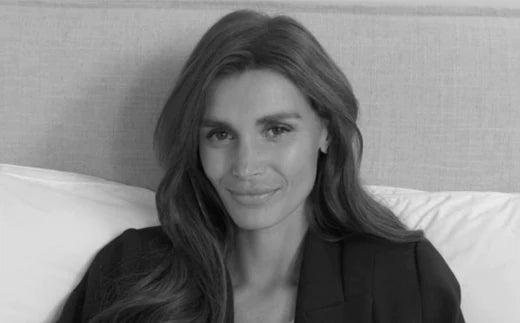Biohacking is the newest wellness trend for 2023. It’s a form of brain and body training to allow more efficient function. Sleep improvement is a big part of biohacking and with good reason. A 2022 study revealed that across the UK, only 47% sleep for 7.5 to 8.5 hours. Almost half (48%) sleep for a meagre 4 to 6 hours, with the standard being 6.4 hours. Collectively, this means the majority of Brits are chronically sleep deprived, and are in serious need of a better sleep.
For those new to the concept, don’t be overwhelmed. Biohacking simply refers to lifestyle changes backed by science. Fortunately, as a global Sleep Expert with over 9 years of academic study, I have the best practices to biohack your sleep. What you do before bed is the greatest predictor of how well you will sleep. In fact, it starts as early as 12pm.
Interested? I hope so. Your best night's sleep is just around the corner with this 10-step actionable bedtime countdown.
8 hours before bed: Cut off caffeine
While we may think our afternoon coffee doesn’t affect our sleep, chances are it will. A 2013 study found that having a coffee 6 hours before bed reduced sleep time by over 1 hour. This is exactly why so many of us struggle to switch off, feel anxious and restless around bedtime. Caffeine stimulates your body, suppressing your need to sleep. For best results, kick caffeine well before the cut off time of 3 or 4pm.
4 hours before bed: Eat your last meal
For those who wake throughout the night, this one is critical. A 2006 study found that those eating within 3 hours of bedtime are 43% more likely to wake up during the night. As digestion is a highly active process, if we eat too close to bedtime, it forces our bodies to stay on high alert. Eating earlier allows our bodies to fully digest before diving into rest.

2.5 hours before bed: Diffuse lavender
Lavender is a potent anti-anxiety compound, perfect for those who find themselves mentally struggling to switch off come bedtime. As noted in a 2013 academic paper, lavender helps to release melatonin for a calmer, more relaxed bedtime.
2 hours before bed: Block out blue light
When we’re exposed to blue light from phones and other electronics, our melatonin is suppressed – leaving us feeling wide awake. When we’re exposed to blue light from our smartphones and TVs, it makes it that much harder for us to fall asleep. In a 2018 clinical trial, blocking out blue light for at least 2 hours before bed improved symptoms of insomnia by 20%.
90 minutes before bed: Take a bath or shower
Anxiety keeping you awake? If so, add having a bath to your pre-bed ritual. A 2018 study by ONSEN Medical Science Research Center, Japan, found that anxiety scores were significantly lower for those who took a bath before bed. Evidence also indicates that showers can improve sleep quality too. If you don’t have a tub, then a shower is still a very worthwhile addition to your bedtime routine.

45 minutes before bed: Drink chamomile tea
You may have thought it was just a myth, but a 2011 academic paper indicated chamomile can induce sleepiness and enhance sleep quality. It naturally relaxes the nervous system, helping us to feel more relaxed. If you have a sensitive bladder or tend to use the bathroom a lot, it may be wise to do this step at dinner time.
30 minutes before bed: Meditate
Meditation can be tricky, especially when our brains are often buzzing with thoughts. This can be made easier with the light-blocking Sleep Mask from Dr. Harris. A clinical trial found 67% of users were more relaxed when wearing it. The raised silicone dots on the inner side of the mask stimulate the skin to cue relaxation. A 2012 study found long-term meditators spend 3 times longer in deep sleep, compared to non-meditators. Sleep deeper with the Dr. Harris Sleep Mask.

15 minutes before bed: Practice deep breathing
Deep breathing is a great tool to improve sleep quality. A 2018 study found this technique can promote melatonin production, helping you fall and stay asleep. Pairing this with the Dr. Harris Anti-Wrinkle Sleep Mask means double-action relaxation to send you straight into a deep, restful sleep.
At bedtime: Tuck in for the best sleep of your life
Possibly the most important step is consistent light-blocking throughout the night. A 2011 study highlighted that leaving a dim interior light on overnight can reduce melatonin production by 50%! This increases the likelihood of a restless sleep. Fortunately, you can avoid this with the Dr. Harris Anti-Wrinkle Sleep Mask. You’ll be happy all night long with this luxurious and comfortable Mulberry silk blend.


